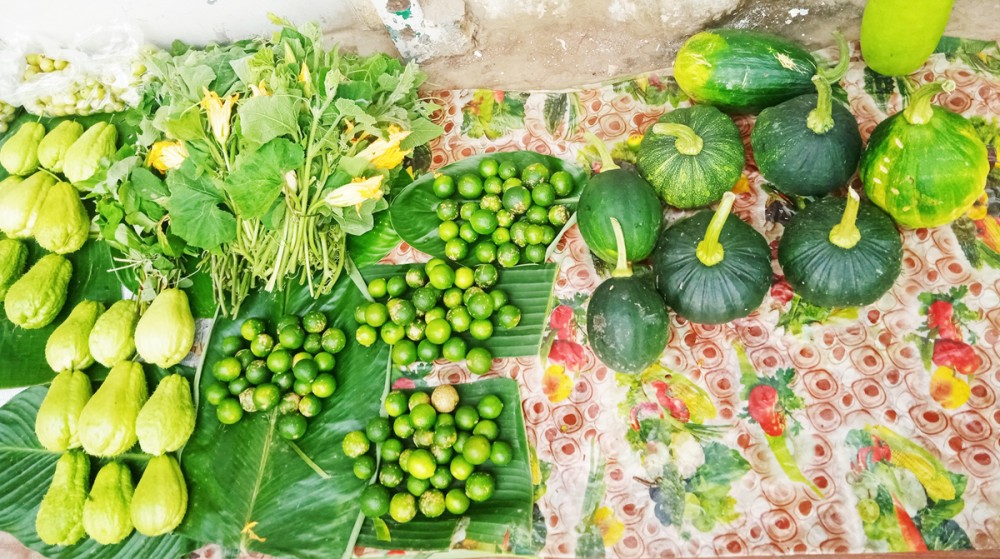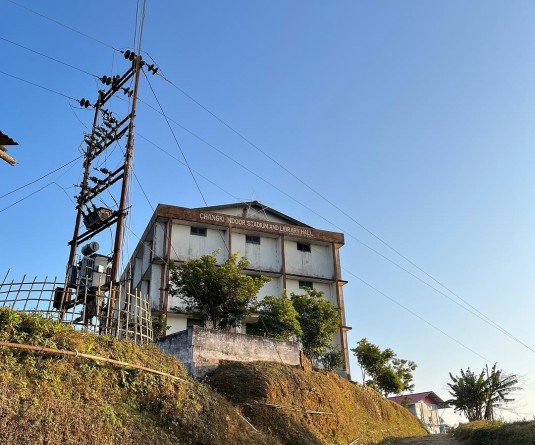
Webinar Session on ‘Organic Farming: Policies & Advocacy’
Morung Express News
Kohima | June 27
Chief Secretary of Nagaland, Temjen Toy on Saturday stated that when it comes to organic farming, the state have a similar history Bhutan wherein farming is organic by default, but has criteria that needs to be fulfilled and standards to be met.
He was speaking at the Webinar Session on ‘Organic Farming: Policies & Advocacy’ organized by Nagaland Organic Konnect (NOK), a society established with the aim to bring together all stakeholders of organic farming in Nagaland.
Toy also announced that Nagaland state “is ready” with is own draft of organic policy. “We are coming towards finalising the organic policy and here we want to go very robust with the participation of the wide spectrum of farmers.”
Chaired by Alemtemshi Jamir, IAS, Patron of NOK, the other session speakers included Kesang Tshomo, Programme Manager, National Organic Flagship Programme, Ministry of Agriculture & Forests, Royal Government of Bhutan; Dr AK Yadav, Advisor, MOVCD & PGS, India, Department of Agri Cooperation & Farmers Welfare, Government of India; and Sundeep Kamath who spoke on behalf of Rommel Arnado, Mayor of Kauswagan, Philippines.
Organic farming in Nagaland
In Nagaland, where organic farming has been talked about for quite a few years now, Toy said: “We would like to go step by step, firstly by promoting organic farming as a value addition to whatever is grown here and also its relevance to food safety and sustainable agricultural system.”
Noting that the state’s resources and areas are not much, he said that one of the objectives is to increase the farmers’ income.
While pointing out that different agencies, including individuals from the private sectors and government departments, were following various action plans to promote organic farming, the Chief Secretary, however, said that results were not really visible yet in the state.
So far as the government is concerned, he hoped to see more concerted and focused approach to organic farming in departments like horticulture and agriculture.
While noting that private enterprising farmers are doing their work admirably, Toy opined that maybe the results were not visible so far because they were very small in number.
Supply chain and markets
Tshomo, in her presentation, underlined that in Bhutan is doing “traditional and natural farming but nothing as organic farming.”
She highlighted on how it was a challenging task talking to people where organic farming is thought of as ‘something luxurious’ or the use of agri-chemicals in Bhutan, although really low, and having to relearn themselves— understand the soil, the ecosystem, the interrelatedness of biodiversity in their country and starting from ground zero.
She also noted that the market is very important and Bhutan is looking at expansion by setting up more organic chains, as well as producing higher volume and trying to link up with India and other neighbouring countries.
“If we can share good food beyond our own region, it has much more beauty as well, everybody can appreciate other organic countries and things they produce,” Tshomo said.
She further emphasized on the ‘policy document’, which Bhutan also does not have, but expressed hope that in the next few years, the country would have a written policy, endorsed by the parliament.
Organic movement
In his address, Dr Yadav noted that with the COVID-19 pandemic situation, the world is anticipating changes all around and agriculture is no exception.
“We anticipate that lot of people will be shifting from non-vegetarian more towards the vegetarian,” he commented, adding there would be more demand for organic and the organic movement in the world.
It started with all struggling steps but it is likely to leap forward now, he maintained.
The Advisor also noted that there have been success stories from North eastern states like Nagaland, Manipur and Mizoram during the pandemic.
Impressing upon that the way organic farmers came out during the crisis is outstanding, he put across that, “they are not only able to help ensure that people get essential supplies but also get good quality.”
Reiterating that this has accelerated during this period, Dr Yadav expressed that the momentum will be sustained.
Pointing to existing models of organic farming, he said, all these models need upgradation in management, value addition and ensuring delivery of material in good shape from Nagaland to other parts of the country.
“I invite them to join the movement of organic production whether it be small enterprises, organic pest management, fertilizers, etc. Take the advantage of the situation, start managing the supply chains, if the returnees put their knowledge on the local situations, they can come out with some innovative ideas, groom them and can deliver directly to those people,” he added.
Kamath highlighted the works of Rommel Arnado in Philippines with regard to organic farming and in a presentation briefly showed the history of violence in the country, the challenges in terms of peace and food security, land issues, etc.
Among other initiatives and recognitions, Rommel initiated the “Arms to Farms Program” as a means of sustainable agriculture and food security. Kamath highlighted of the strategies and impacts of the project.






